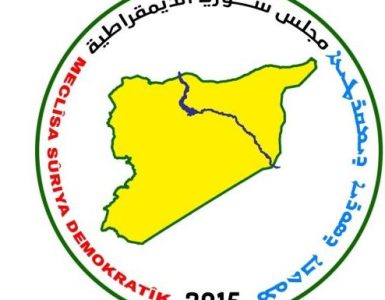By Bashar Abboud
One of the fundamental principles of the culture of democracy is the ability to engage in dialogue with others without undermining relationships. Given this essential principle, important questions arise: Why have Syrians been unable to foster a genuine national dialogue, even with the many commonalities they share? What are the obstacles that hinder constructive communication among Syrian democratic powers, despite the shared political situation and challenges they face?
Could this be attributed to the lack of a key structure the culture of democracy within Syrian society? Does this culture appear to be superficial rather than deeply ingrained, resulting in an ineffective dialogue?
Most of Syrian opposition formations, especially those that have been active in public affairs since 2011, lack the culture of democracy. This is evident in the discourses exchanged among Syrian opposition bodies and those directed towards the broader public.
Moreover, many Syrian political entities have sought to assert their presence, emphasizing historical injustices experienced by specific segments of the Syrian society. Additionally, they have highlighted hardships and sacrifices endured by these segments. They have urged that these segments deserve a greater share of power in the event of al-Assad regime’s overthrow.
On the other hand, they have accused other political powers of exhibiting separatist tendencies or forming political entities that fail to engage constructively with the broader political landscape. Consequently, it becomes impossible to collaborate with these powers within the framework of democracy, irrespective of the circumstances.
This capacity to decisively categorize others highlights two important issues. First, the democratic party has accused other democratic parties of various shortcomings, disregarding their experiences. The divisions among Syrian political powers are evident in their attitudes and actions of superiority toward others. This sense of superiority makes it difficult for the powers to work together, leading to further discord and fragmentation. Also, if these powers gain influence and military resources, their arrogance could have serious implications.
Also: Democratic Powers Seek Holding a Vital Conference for Syria’s Unity
This form of political activity, which has dominated the Syrian opposition since 2011, leads us to make an unavoidable acknowledgment. This recognition implies that Syrian society is experiencing severe crises. If we do not acknowledge this reality, we cannot establish a genuine foundation for discussion. The culture of democracy is essential for creating a political solution for Syria and its people, who have been suffering for nearly a decade and a half.
Therefore, the failure to establish a foundation for democratic dialogue among the various Syrian political powers has become evident. This has posed a significant threat to the social fabric of Syria. It has undermined the chances of achieving a comprehensive and sustainable political solution by the Syrians themselves.
The Syrian Democratic Path Conference, which will be held in Brussels on October 25, 2024, is crucial as it could establish a strong foundation for national dialogue. The conference aims to establish a clear vision and strategy for political action, leading to a roadmap that will help Syria emerge from its ongoing crisis.
The conference aims to establish a clear vision and strategy for political action. It leads to a roadmap that will imply a focused effort to resolve the Syrian crisis. This will be achieved by prioritizing national interests and intensifying collective efforts to liberate Syria from all occupations. Subsequently, it will work towards building a unified democratic Syria that guarantees the rights of all its diverse communities without discrimination or exclusion.
At present, the challenges facing Syrians are greater than ever before. The Middle East is currently experiencing a significant transitional phase, marked by shifts that began to unfold following the events of the Israeli-Hamas conflict on October 7, 2023. Therefore, it has become the national duty of Syrian democratic powers to overcome these future challenges. Creating a strong and credible Syrian entity is a key aspect of this preparation. This entity should be capable of engaging in dialogue not only on a national scale but also across the broader region. As the region experiences significant changes, this entity should play a crucial role in shaping Syria’s future.
Also: Patriotism Shapes a New Vision for Syria’s Future
From my perspective, the Conference will be a pivotal opportunity to resolve the Syrian crisis.
Furthermore, all participants in the Conference should actively contribute to establishing a constructive dialogue rooted in Syrian patriotism.
Also, the Conference’s outcomes should lead to a political solution meeting the aspirations of the Syrian people. Additionally, this solution should preserve the unity and sovereignty of the country. It should a significant message to regional, Arab, and international actors that Syrians are ready to implement UN Resolution 2254.
Therefore, Syrians must take responsibility for establishing a new work in upcoming days. They also should emphasize that the event on October 25, 2024, will be marked by real achievements capable of resolving the Syrian crisis. The unification of Syrian democratic powers is an utmost necessity for the creation of a new Syria.
This is particularly significant in light of the current regime’s ineffective governance regarding both domestic issues and its relations with neighboring countries.
The efforts made to ensure the success of the Syrian Democratic Path Conference have been enormous. It would be a serious misstep for these efforts to be squandered without achieving a satisfactory resolution for all segments of Syrian society.
We hope that the Syrian people will seize the opportunity presented by the Conference. This will foster local, regional, and international cooperation. Such efforts will contribute to a meaningful change for the country, its citizens, and the broader region.
This matter raises the following question: Can we optimistically assert that the process of resolving the Syrian crisis has begun on a well-defined path?
Can we reasonably hope that Syria will witness a new beginning as a result of the Brussels Conference in the fall of 2024?
The outcomes of the Democratic Path Conference will ultimately play a decisive role in fulfilling the goals and ambitions we aspire to.




